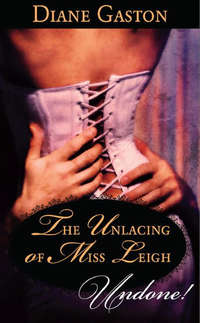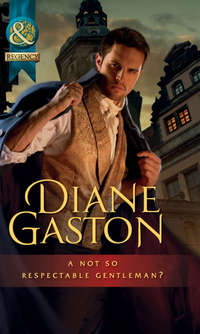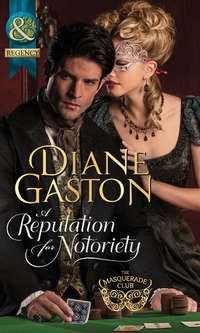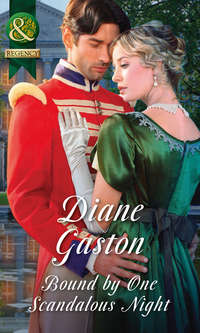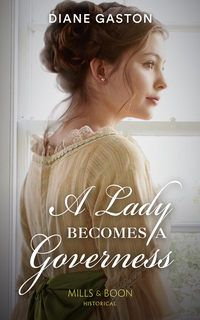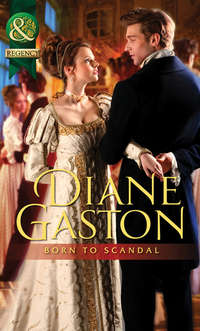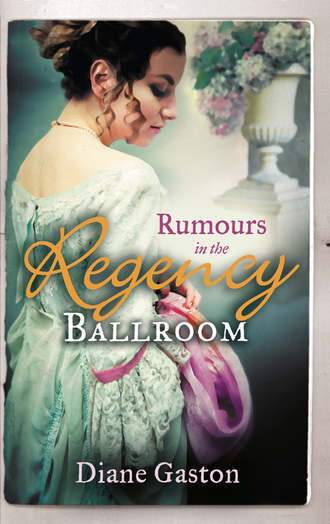
Полная версия
Rumours in the Regency Ballroom: Scandalising the Ton / Gallant Officer, Forbidden Lady
Adrian had discovered that Lydia had hired back most of her servants. Or rather his valet had discovered it at Adrian’s request. He had no idea how his man had accomplished it, but within a day Hammond had produced the information of how many servants had been dismissed originally and how many had returned. The number was sufficient to ensure her comfort.
He leaned back against the padded upholstery, trying to feel some satisfaction in having helped her.
The coach lurched forwards, the unexpected motion causing both father and son to grip the seats.
His father frowned. “I do hope the springs in this carriage are up to a trip of this length. I do not relish being jostled about.”
This was Adrian’s first ride in the elegant carriage bearing the Earl of Varcourt’s crest. “It is a damned sight better than the last hack I rode in.”
His father huffed. “Why you ride in those things is a mystery to me. Our old coach is at your disposal any time you require it.”
“That is generous of you, sir.” Adrian’s father was always generous.
This carriage did have a tendency to sway to and fro in a manner as lulling as a ship in gentle waters. After leaving the busy streets of London, they lapsed into silence. His father dozed and Adrian lost himself in thoughts that seemed as unfocussed as his life. The day promised to be long and tedious, but it was their duty to be present at the Queen’s funeral.
“When duty calls, a gentleman must always rise to do what is required of him,” his father always said. And always added, “So enjoy life while you can, my son.”
His father would deny it, but Adrian knew he relished doing his duty in whatever form it took, and probably had enjoyed it even from his youth, when he inherited the family title. Adrian’s father was a man who could be counted upon to do what must be done, but he also tended to glorify what he’d missed, the chance to be a frivolous, pleasure-seeking youth. His father could not fathom how such trivialities could grow tiresome over time.
When they reached Kew Palace there was a jumble of carriages, cavalry and foot soldiers, royal grooms and pages. Also in attendance were the royal physicians and countless other members of the royal entourage. Somehow this multitude sorted itself into a dignified and orderly procession, moving solemnly towards Windsor and St George’s Chapel.
The procession kept its snail-like pace the whole distance, reaching Houslow Heath shortly after noon and the chapel at seven in the evening. By that time most of the London carriages had turned off, making their way back to town. It was appalling how few peers actually endured the day long enough to attend the Queen’s funeral service.
Adrian and his father endured it, as duty demanded. By the time their coach was again pointed in the direction of London, his father’s energy had flagged and his rhythmic snores joined with the sound of the horses’ hooves and the creaking of the coach’s springs.
Adrian stared at the darkness outside, alone again with his thoughts.
What was there to look forward to in the weeks ahead? Within days London would empty, the ton fleeing to country houses or the Continent, places where they might find entertainment. With the official mourning of the Queen, the London entertainments would disappear. The theatres were already dark, and no one had hosted a ball or dinner or rout since the mourning commenced.
Adrian supposed he could accept his mother’s invitation to spend Christmas at the Varcourt estate. No doubt several of his parents’ friends would be in attendance. There would be card playing at night and perhaps he could ride in the mornings. There would be plenty of land to give his horse a good run.
Tanner had invited him to Tannerton, as well, but Adrian had already begged off. He knew Tanner would prefer to be alone with his new wife.
Perhaps he should travel somewhere, somewhere like…Paris.
Yes. Paris would be a novelty. Things were a bit gayer there now than they had been right after the war, he’d heard. More money was pouring in to the city each day. There were plenty of casinos he might visit, as well as the various sites of interest in the city.
Yes, he made the decision. He would go to Paris.
Anywhere to battle this cursed ennui.
Chapter Seven
The notorious Lady W—has gone back into hiding, no longer venturing to visit the shops on Piccadilly or to take walks in Hyde Park. All of London wishes to know why. Could she perhaps be in an interesting condition?—The New Observer, April 11, 1819
Adrian sat in the dining room at the townhouse on Curzon Street. While he’d been in Paris, his father had written to him that the Pomroy house would be ready for him on his return. Adrian made arrangements for his belongings to be moved from his rooms near St James’s Square, and wrote to tell the servants at the townhouse when to expect him. He’d entered the house he’d known as a child, just the day before this one. It continued to be a curious combination of familiar and strange. Adrian had slept in the room and on the bed he’d always known as his father’s and was now seated at the head of the long dining-room table in what seemed like his father’s chair.
His family’s butler, a man hired by his father years ago, entered the room. “The newspapers, my lord.” The butler even addressed Adrian in the same tone he’d always addressed Adrian’s father.
“Thank you, Bilson.” Adrian tried at least to sound like himself. He returned his coffee cup to its saucer and took the papers in hand.
He supposed he ought to send an announcement to the papers telling of his return. In fact, Bilson could see that it was done—one of the benefits of having more servants. He had even less to do.
The New Observer happened to be the newspaper on top. Adrian rolled his eyes. Bilson could forgo the subscription to the scandal sheet that had so maligned Lydia.
Adrian took a deep breath and dug his fork into a slice of cold beef. It made no sense to think of Lydia. He’d done an excellent job of forgetting her in Paris. Several high stakes’ card games had taken his mind away.
Until he won, that is, and remembered he was replacing funds he had given to her. He had also met a few very pretty French mademoiselles, but he could not sustain an interest in them. He attributed this to his general malaise, not to comparing them to Lydia.
Adrian shook his head and skimmed The New Observer, its columns full of gruesome murders and titillating affairs.
His gaze caught on the words the notorious Lady W—. Damned paper. What were they saying of her now?
He read on.…All of London wishes to know…Could she perhaps be in an interesting condition?
Adrian sprang to his feet, toppling the mahogany chair onto the carpet. “What the deuce is this?”
Bilson stepped in. “Is anything amiss, my lord?”
Newspaper still in hand, Adrian strode towards him. “My hat and gloves, Bilson, and be quick. I’m going out.”
Bilson lost no time in retrieving the hat and gloves, and Adrian was on the street in less than a minute. He set a quick pace in the direction of Hill Street and Lydia’s house, an easy walk away.
When he reached the street he saw several men clustered around.
Newspaper reporters.
He had half a mind to send them about their business, but that would certainly not remove her name from the papers. It would merely add his. He blew out a frustrated breath. He could not call upon her while the reporters watched who was admitted to her house. He crossed the street.
He thought about calling upon Tanner, but what would he say? Lady Wexin is with child and, if the child is not Wexin’s, it might be mine?
Adrian wasn’t ready to burden his friend with that information, especially as Tanner had written to him that he and Lady Tannerton were expecting a baby.
Adrian walked past Lydia’s house. As he passed by, a gentleman approached it—Lord Levenhorne, holding a newspaper and wearing a determined look upon his face. He was almost immediately swarmed by reporters.
Adrian watched Levenhorne beating them off with his newspaper. Adrian decided to head to White’s. With luck, Levenhorne would stop by there, and, when he did, Adrian would be present to hear all about his call upon Lady Wexin.
A soft light diffused through the curtains of the morning room and illuminated the page of the newspaper.
Lydia stared at the words. Could she perhaps be in an interesting condition?
A wave of nausea overcame her, not morning sickness this time, but a sickness of another kind. “How could they have discovered this?”
She’d secluded herself ever since the familiar symptoms emerged several months ago—aching breasts, inability to keep food in her stomach, heavy fatigue. Mary had noticed and knew from the start that Lydia was with child. Mary also had witnessed her last miscarriage and knew this child was not Wexin’s. The maid had not asked the baby’s paternity, though, and Lydia had explained nothing.
Five months had passed and Lydia’s figure showed the telltale changes. The other servants now also knew her condition. Lydia trusted her servants had kept this secret. They had been as loyal and caring as a family, but perhaps one of them had slipped and said something to someone and someone had said something to The New Observer. Or perhaps that vile reporter, Mr Reed, had decided to make this up and accidentally hit upon the truth.
She heard the murmur of voices outside. Tiptoeing to the window, she peeked through the gap in the curtains. They were out there again, the reporters. She’d been totally free of them ever since the poor Queen had died and had hoped never to see them cluster around her door again. They were back this morning, gathering around a gentleman who flailed at them with a newspaper in one hand and his walking stick in the other.
Lord Levenhorne.
Lydia pressed a hand protectively against the rounded mound of her abdomen. She had never carried a baby inside her this long.
She ought to consider it a tragedy that she’d conceived a child from that one brief moment of making love with Adrian, but she could not. It was a miracle. A miracle. One last chance to have a baby. She did not expect to ever have another chance. She would certainly never marry again, even if some man wanted her. She would never again put her life and her future in a man’s hands. She pressed her belly again, thankful this child was not Wexin’s.
Still, she mourned the loss of his babies, the three little lives she’d been unable to hold inside her long enough. Every morning now, she woke expecting to feel that cramping, that spilling of blood, but this baby still grew within her. She could feel it flutter, blessedly alive.
She wished now she had written to her sister to give her the excellent news. Instead her sister would read it as gossip in the newspapers.
After her money had been restored to her, Lydia had sent her sister a letter of thanks. She’d heard nothing in reply, and her sister’s maid told Mary there should be no more correspondence. Lydia still felt she ought to have written to her with the news of her pregnancy.
She wondered if her sister would contact her if she heard from their parents or brother. Lydia had heard nothing, which distressed her greatly. Surely if they were safe, one of their letters would have reached her by now, even if her letters had not reached them.
Lydia heard footsteps approach. She took in a deep breath. Lord Levenhorne could not upset her. Even the vile reporters could not upset her. Not when her baby moved inside her.
“Thank you, Adrian,” she whispered to herself. “For such a gift.”
Dixon entered the room, his expression distressed.
Lydia saved him from having to inform her who had called. “I know who it is, Dixon. I saw him through the window.”
Dixon cleared his throat. “I shall tell him you are not receiving callers if you wish it.”
Lydia gave him a reassuring look. “I will see him.” She touched her abdomen. “This is no secret, is it, Dixon? He will have to know at some time.”
Dixon’s features softened. “’Tis no secret, my lady, but we cannot allow his lordship to cause you distress.”
She was touched by his concern. “Do not fear. I shall manage nicely.”
She followed Dixon out to the hall where Levenhorne paced back and forth. The moment he saw her, he started towards her. “Lady Wexin—”
She extended her hand to him. “How kind of you to call upon me, Lord Levenhorne.”
He looked taken aback by the offer of her hand. He shook it, and belatedly gave her the bow politeness required of him.
Lydia turned to Dixon. “We’ll have tea, if you please.” Levenhorne blustered, “This is not a social call—”
She swivelled back to her guest. “I would still serve you refreshment, sir. Let us go to the drawing room where we might be more private.”
She led him up the stairway into the more formal drawing room with windows so high no reporter could see into them. She settled herself on a sofa and gestured to her guest. “Do sit, sir.”
His eyes flashed with impatience, but he lowered himself into the chair opposite her.
“How is Lady Levenhorne?” Lydia made her tone polite, as if this were indeed a social call. “I have not seen her in an age. Is she in town yet?”
“She is well,” he answered curtly. “She is in town.”
Most of the ton would be in town. The London Season had commenced, as gay as always, since the Regent had ended official mourning for his mother after only six weeks.
“And the children?” Lydia asked.
Levenhorne waved a hand. “They are well. All of them.”
“I am delighted to hear it.” Lydia made herself look Levenhorne in the eye. “I confess, I had thought to see Lady Levenhorne before this. I had thought perhaps she would call on me.”
It was bad manners to point out his wife’s neglect—and his—but these people had hurt her. The Levenhornes were related to Wexin, after all. True, Lord Levenhorne had called after Wexin’s death, but, like today, only to speak of the inheritance and to ask if she were increasing. Indeed, the only person who’d reached out to her in kindness had been Lady Tannerton, but Lydia had refused to see her. How could she face the widow of the man her husband had murdered, the woman he had framed for the deed?
Lydia felt her baby flutter inside her. She’d forgotten. One other person had called upon her and had been very kind.
Adrian.
Her butler accompanied the footman who carried the tea tray and set it on the table in front of Lydia. She knew Dixon had come out of worry for her.
“Thank you so much.” She glanced at Dixon, hoping he knew she thanked him for his concern as well as the tea. “I shall let you know if I require anything else.”
Dixon left the room and Lydia looked across at Lord Levenhorne. “How do you take your tea?”
He squirmed in his chair. “With milk. One lump of sugar.”
Lydia busied herself with pouring his tea and then handed the cup to him so he was forced to take it from her. She watched him until he took a polite sip before pouring her own cup.
She was proud of herself. A few months ago she might have cowered in front of Lord Levenhorne. That had been when she’d had no money and no child to give her life purpose. He could not frighten her now.
She sipped her tea quietly, not making it easy for him to blast her with what the newspapers implied and her waistline verified.
He put down his tea cup and picked up the newspaper, now creased from having been folded in his hand. “Have you seen this?”
She blinked at him, pretending to be confused. “A newspaper?”
“Blast it,” he swore more to himself than at her. “The New Observer. Have you seen it today?”
She did not answer directly. “What does it say that distresses you so?” Let him utter the words.
He glanced down at it for a moment, then he tapped it with his finger. “It says you are in an interesting condition.”
Lydia made herself laugh. She stood so that her skirt draped against her thickening middle. “I am in an interesting condition, as you can see, sir, but I have announced the happy event to no one.”
“They know.” He tapped the paper again. “It says Lady W.”
She lowered herself back into her seat and picked up her cup of tea. “Oh, then it could not possibly be Lady Wilcox or Willingham or Warwick…”
“Come now, they must mean you.” He pushed the paper towards her as if that would prove it. “What is the idea of this?”
“Of what?” She gave him her best ingenuous expression.
“Of your—your—your—delicate condition.”
She placed a hand on her abdomen. “My baby, do you mean?”
“Of course I mean that!” he cried. “Why was I not told of it? Why must I learn of it from this scurrilous newspaper?”
Lydia took a sip of tea before answering him. “First of all, Lord Levenhorne, I am not at all certain you have learned of my condition from a newspaper. Surely your wife knows very well that I have lost other babies. If I preferred not to make any announcement until I was more certain I might carry this baby to term, I cannot see how you can fault me.”
His face turned red and he bowed his head.
She went on. “I do appreciate that you have some interest in the information, sir.” If she produced a son within ten months of Wexin’s death, that son would inherit Wexin’s title and estate instead of Lord Levenhorne. “I would have told you as soon as I believed the baby had a chance to survive.”
Which was true, but it was also true that she’d wanted to keep the precious news to herself as long as possible.
Levenhorne grimaced as he lifted his head and met her eye. “You cannot tell me this—this—child is Wexin’s.”
She kept her gaze level, but her heart beat frantically inside her chest. “If my child is not born within the ten months, you have the right to make that statement to me, sir. Not before.” She stood. “Do you have anything else you must say to me?”
He rose to his feet, still looking as if he wanted to chew her for breakfast. “You have not heard the end of this.”
He might make all the accusations he wished. No matter what she knew to be true, the law stated that this child was Wexin’s if born within ten months of his death.
It was not a huge risk she was taking. She’d conceived the baby only a month after Wexin’s death; surely the baby would be born within the ten months. Her prayer was that she could hold the baby inside her long enough for the baby to live. Nothing mattered more to her than birthing a healthy child.
Levenhorne marched out of the room, and Lydia collapsed onto the settee.
“Well, that is done,” she murmured, touching her belly where the child that was not Wexin’s kicked inside her.
The baby that was Adrian’s.
Adrian chose a table in White’s coffee room with a clear view of the doorway. Should Levenhorne appear, Adrian would be the first person he encountered. There were very few gentlemen present at this hour, men who had no better place to eat breakfast and no better place to spend their time.
Like him.
He had checked the betting book on his way in. The wagering about which Lord C had been linked with Lydia seemed to have ended with the Queen’s death and the exodus from town. His name was still not among the suggested Lord Cs.
He finished two cups of coffee and read all of the newspapers. He read a great deal more than he wished to know about the state of herring fishing as reported to the House of Commons. He read of a terrible fire in corn mills in Chester and of the trial of a former soldier who had robbed the White Horse Inn. The only paper that printed anything about Lydia’s condition had been The New Observer, and the reporter had been Samuel Reed.
Adrian lifted his head every two minutes to see if Levenhorne had arrived. Eventually he glanced up, and Levenhorne indeed strode in the room, looking like thunder.
Adrian was ready for him. “Good God, Levenhorne. Come tell me what has happened.”
The man looked no further into the room, but sat down across from Adrian, a crumpled newspaper in his hand. “Have you read this?” He waved the paper in Adrian’s face.
“I’ve read several papers this morning.” This was obvious as they sat in a pile next to his coffee cup. “Which one is that?”
“The New blasted Observer.” Levenhorne signalled the servant who quickly took his request for coffee…and brandy.
“Ah, the gossip newspaper.” Adrian responded. “Was there something of you in it?”
Levenhorne shook his head and opened the newspaper, jabbing it with his finger. “Not of me. Of Lady Wexin.”
The servant brought his coffee and brandy, and Levenhorne downed the brandy in one gulp. Adrian waited for him to continue.
He added cream and sugar to his coffee and lifted the cup for a sip. “The newspaper said she was increasing. I have just come from calling upon her and it is bloody well true.”
“Increasing.” Adrian spoke in as non-committal a voice as he could.
“Increasing,” repeated Levenhorne. “And if she produces a son within the ten-month period, the title and property go to him.”
“And not to you.” Adrian made himself take a sip of coffee.
“Not to me.”
Adrian gave him what he hoped was a puzzled look. “But I thought you lamented this inheritance, saying Wexin had riddled it with debt.”
The man grimaced. “That was before Mr Coutts persuaded me to fund some rather substantial repairs to the buildings on Wexin’s estate and to finance the spring planting.”
“Ah,” Adrian said.
“Thing is, it is a good piece of property, worthy of the investment. Prime land. Could make an excellent profit.” Levenhorne shook his head in dismay. “I had no intention of providing for Lady Wexin’s brat, however. Let her father do that. I dare say he can afford it better than I.”
“Has her father returned from his tour?” Adrian asked.
Levenhorne shook his head. “Not that I have heard. God knows what has happened to them. No one has heard from them, it is said.” He bowed his head. “I’m afraid I was unforgivably rude to Lady Wexin. Said the baby could not be Wexin’s.”
Adrian took the creased newspaper in his hand and pretended to read it for the first time. “It says nothing of that here.”
“I know.” Levenhorne tapped his fingers on his coffee cup. “Besides, who else could have fathered the child? The lady is a recluse.”
But not by her desire. Because the society whose darling she once had been had turned its back on her. And Adrian knew precisely who else could have fathered the child.
Levenhorne’s eyes widened. “I say, Cavanley. You will say nothing of this, will you? I’d prefer no one knew I spent good money on that blasted estate. I probably ought not to have spoken so plainly.”
Adrian waved a hand. “I’ll speak of it to no one, you have my word.”
Levenhorne stared into his coffee for what seemed like a long time. “The more I think of it, the more I think that baby is not Wexin’s. Too much time has passed. Conception would have to have taken place in October before Wexin travelled to Scotland. She’d be six months along and, let me tell you, at six months, my wife’s belly was always bigger than this lady’s.”
Adrian frowned. He knew nothing of such matters, but he did know that it had been almost five months to the day that he’d lain with Lydia.
Levenhorne pounded his fist on the table. “She’s pulling a fast one on me, I’d wager on it, and she has my hands tied until the ten months is over. Crafty wench. There’s not a blasted thing I can do about it.” He sighed. “Except hope the baby comes late or she pushes out a girl.”
Adrian made himself sit very still lest he launch himself over the table and put a fist into the other man’s face.


